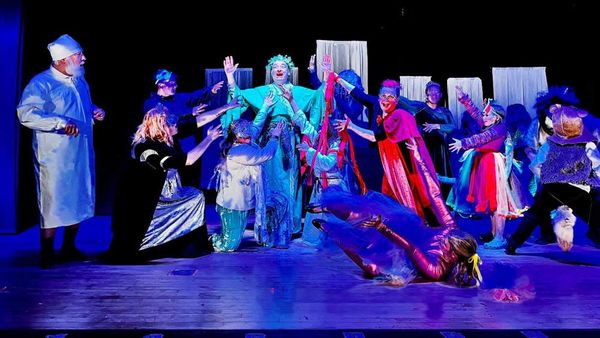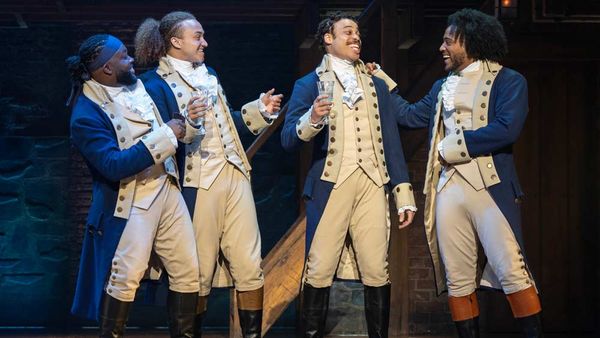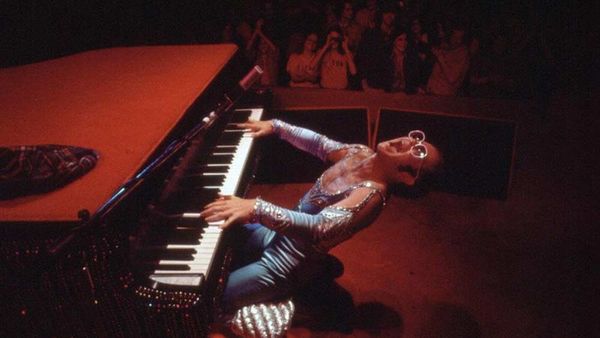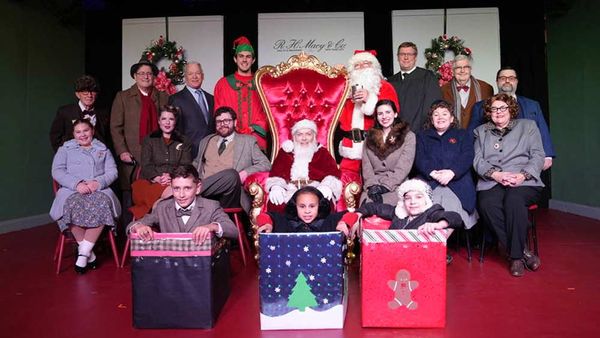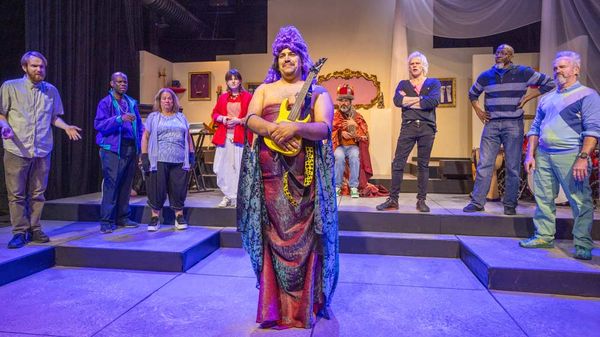October 11, 2010
The Coveted Crown: King Henry IV, Parts I and II
Kilian Melloy READ TIME: 3 MIN.
The Actors' Shakespeare Project has always been ambitious in terms of interpreting The Bard for a contemporary audience without going right off the rails. The troupe's use of the various spaces around the Boston area, and the ways in which those spaces have been adapted with stage design and lighting have been as much a part of the pleasure of each new season as the choice of plays themselves.
This season, ASP has big things in mind. The company announces as much with its most ambitious production yet, running two plays in repertory: King Henry IV, Part I, and King Henry IV, Part II. Both are directed by Patrick Swanson, who does sensational work. The two plays are presented under the omnibus title, The Coveted Crown. Think of this as one production in two parts. If the very idea gives you chills of pleasure, you're on the right track: The Coveted Crown launches ASP's new season from a high-water mark of creative authority.
Part I begins with a prologue drawn from the end if King Richard II, in which Henry IV (Joel Colodner) first ascends to the throne. This succession is not without controversy, and the ramifications are felt across England's political landscape, with religious and secular power-brokers scrambling to undermine the new King. Rebellion is imminent; meantime, Henry IV's son, Hal (Bill Barclay), wastes his time and treasure frolicking with the dissolute Falstaff (Robert Walsh, padded to enormity and gleefully throwing his weight around the stage).
A battle between the King's forces and those seeking to overthrow him caps the first play; but as a troubadour informs us, this is not the end. The audience is invited back to see how things develop further in Part II; it has to be the most alluring way of saying, "To Be Continued" in the history of cliffhangers.
To reintroduce us to the plot and the players, Part II begins with a re-staging of the battle to the death between Hal and Hotspur (Allison Burrows). The two young men are the successors for their respective power camps; Hal will eventually become Henry V, while Hotspur is the son of Henry IV's chief military rival. As Henry IV falls into declining health, the machinations of his foes continue; another battle looms. Hal, meantime, drifts away from his youthful mentor and begins to embrace the duties that will befall him upon his own succession to the throne. Barclay blossoms in the role of Hal, and Walsh shows Falstaff to be a creature of many moods and colors; lazy and scheming, yes, but also valorous in his way. Just as The Coveted Crown drew from Richard II for its beginning, it takes the first scenes from Henry V as its epilogue. The two parts come across as one glorious whole, with a unity of direction giving the overall experience an epic feel.
This is partly accomplished through some hard-charging fight choreography, but also through the use of music: the two parts are laced with song and musical accompaniment, whether the martial beat of drums or a jazzy oboe blown at a high-class restaurant where Falstaff enjoys the menu's offering without bothering to reckon in advance how he'll pay the bill. The songs serve to narrate, and to set the mood: there are religious chants in Latin, but also some good ol' bawdy ditties.
The lighting design is as dramatic and effective as anything we've seen from ASP: lights tucked into the space's nooks glow, and golden light streams through cracks in the floorboards as armies clash and swords collide against shields. A character's death at a pivotal moment is marked by a crimson spotlight. A nighttime caper is graced by moonlight. This is Shakespeare: not exploded, nor turned inside-out, but met on its own terms with assurance and artistry.
The season to come promises more innovation from the Actors' Shakespeare Project. Three plays are scheduled to comprise the seasons's "Winter Festival," Shakespeare's Cymbeline and two non-Shakespeare plays, The Hotel Nepenthe, by ASP company member John Kuntz, and Living in Exile, by Jon Lipsky, who re-imagined The Iliad for modern times. The season will close out next spring with Antony & Cleopatra.
Kilian Melloy serves as EDGE Media Network's Associate Arts Editor and Staff Contributor. His professional memberships include the National Lesbian & Gay Journalists Association, the Boston Online Film Critics Association, The Gay and Lesbian Entertainment Critics Association, and the Boston Theater Critics Association's Elliot Norton Awards Committee.


